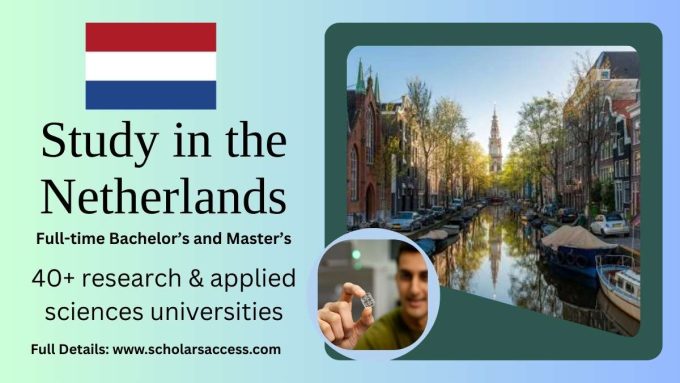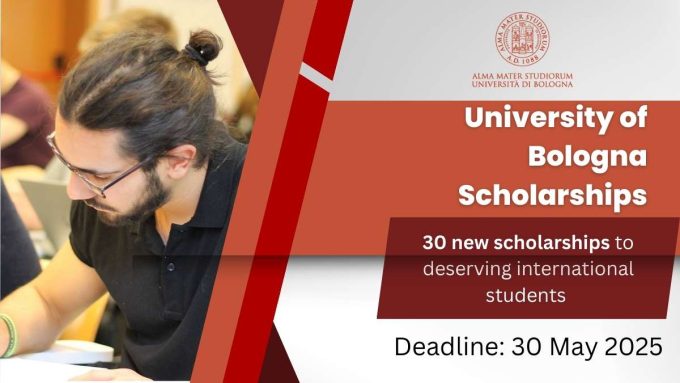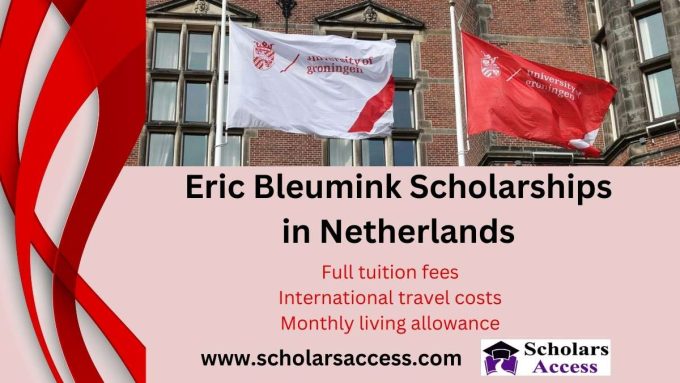A PhD in Cognitive Neuroscience of Motivation explores why our drive to achieve goals can be powerful at times and seemingly disappear at others. If you’re fascinated by how the brain fuels ambition and decision-making, this path may be exactly what you’re looking for. Pursuing this PhD in the Netherlands offers an exciting opportunity to uncover the neural foundations of motivation.
We’ll break down everything you need to know: from what this PhD involves to how to apply, all while keeping the language friendly and accessible. Whether you’re just stepping into neuroscience or looking to find your next academic adventure, this article is for you.
What Is Cognitive Neuroscience of Motivation?
Think of motivation as the fuel in your car and your brain as the engine. Without fuel, no matter how well-built the engine is, you’re not going anywhere. Cognitive neuroscience helps us understand this fuel—how our thoughts, feelings, and actions are connected to brain activity.
In this field, you’ll explore questions like:
- What brain mechanisms spark ambition?
- How does emotion influence goal-setting?
- Why do some people stay focused while others give up?
This PhD in Cognitive Neuroscience of Motivation combines psychology, biology, and neuroscience to answer these questions using tools like brain imaging, behavioural testing, and computational models.
Why Choose the Netherlands for Your PhD in Cognitive Neuroscience of Motivation?
Picture this: canals flowing past libraries, bike rides to your lab, and an academic environment that’s both challenging and supportive. The Netherlands isn’t just picturesque—it’s also one of the top destinations for international students pursuing higher research degrees.
Here’s why the Netherlands is a great place to study cognitive neuroscience:
- English-Taught Programs: Most PhD programs are in English.
- Strong Research Culture: Dutch universities are renowned for their research prowess.
- International Community: You’ll find peers from all over the world.
- Work-Life Balance: Dutch culture values personal well-being.
- Visa-Friendly: Clear visa policies for international PhD candidates.
Introducing the PhD at Radboud University
One of the leading programs for a PhD in Cognitive Neuroscience of Motivation is hosted at Radboud University, located in Nijmegen. If you haven’t heard of it yet, think of it as one of Europe’s best-kept academic secrets—intellectually rich, yet refreshingly humble.
The program is part of the Donders Institute for Brain, Cognition and Behaviour. It’s a world-renowned centre that combines cognitive science and neuroscience in one tight-knit, innovative hub.
Key Benefits of the Program of PhD in Cognitive Neuroscience of Motivation
Let’s talk perks—and not just free coffee in the lab (though that’s nice too). Here’s what makes this PhD in Cognitive Neuroscience of Motivation stand out:
1. Cutting-Edge Facilities
From 7-Tesla MRI scanners to advanced EEG labs, you’ll have access to tools that most can only dream of.
2. Hands-on Research Training
You won’t just read theories—you’ll design studies, collect data, and even publish your own findings in respected journals.
3. Multidisciplinary Collaboration
You’ll work with psychologists, computer scientists, medical researchers, and even philosophers. The environment is intellectually diverse.
4. Financial Support
PhD candidates are hired as paid employees. That means you won’t pay tuition—instead, you’ll earn a monthly salary with social benefits.
5. Career-Boosting Opportunities
Whether you’re eyeing an academic career or want to work in tech, healthcare, or policy, this program sets you up for success.
Is This PhD in Cognitive Neuroscience of Motivation Program Right for You?
If any of these sound like you, you’re probably a good fit:
- You hold a Master’s degree in psychology, cognitive neuroscience, or a related field.
- You’re excited about motivation, behaviour, and the brain.
- You enjoy critical thinking and research design.
- You want to work in a diverse, international research team.
- You’re comfortable communicating in English.
Don’t worry if you’re new to brain imaging or computational methods. The program offers training and support for international students transitioning into neuroscience.
Application Deadline & Submission Details
Deadline: May 12, 2025
Starting Date: September 1, 2025
Applications are made through the Radboud University online portal. Make sure to submit the following:
- CV (with research experience, if applicable)
- Motivation Letter (tailored to the topic of motivation research)
- Academic transcripts (Bachelor’s and Master’s)
- Contact info for two referees
- Optional: samples of prior academic writing
Tip: Write your motivation letter like a story. Talk about what drives you and how you plan to contribute to understanding the science of motivation.
Life in Nijmegen: More Than Just a Student City
Nijmegen isn’t just the home of Radboud—it’s also a vibrant student city where you’ll never feel like just another number.
You’ll enjoy:
- Affordable living costs compared to other European cities
- A warm and welcoming international community
- A rich cultural scene—from jazz cafes to historic museums
- Endless biking routes and beautiful nature spots for weekend escapes
In short, it’s a place that nourishes both your mind and your soul.
Career Paths After Graduation
What happens after the PhD? Spoiler: it opens a lot of doors.
Graduates of cognitive neuroscience PhD programs often go on to:
- Academic Roles: Become postdoc, lecturer, or professor
- Industry Research: Join companies focused on neurotech, AI, or mental health tools
- Clinical Settings: Collaborate with hospitals or research clinics
- Policy & Government: Help shape mental health or education policy
- Tech Startups: Work on behaviour-based AI, UX research, or brain-computer interfaces
The demand for neuroscience expertise, especially in understanding motivation, is booming, from education to tech giants like Google and Microsoft.
Tips for Standing Out as an Applicant
Let’s be honest—Ph.d. in cognitive neuroscience of motivation slots are competitive. But you can boost your chances with the right strategy.
- Start Early: Don’t wait until the last minute to write your application. Give yourself time to revise.
- Tailor Everything: Customise your motivation letter to show why this specific program fits you.
- Show Passion and Curiosity: They’re looking for future thinkers, not just good grades.
- Highlight International Readiness: Mention any cross-cultural experiences or language skills.
- Demonstrate Research Drive: Even if you haven’t published, show that you’ve engaged with research methods, literature, or independent projects.
What Makes This PhD in Cognitive Neuroscience of Motivation Unique?
This isn’t your average neuroscience PhD. What sets the PhD program at Radboud University apart is its laser-like focus on motivation.
It’s not just about studying the brain—it’s about understanding how internal drive, emotions, and decisions are encoded and influenced by our neural circuits.
The project delves into the computational and neurobiological basis of motivation, allowing you to explore how rewards, expectations, and effort are wired into our cognitive processes. You’ll use real data to test models and theories that might one day help treat motivational disorders like depression or ADHD.
Ready to Apply?
Visit the official job page: Radboud University Job Portal
And don’t forget to explore more resources about cognitive neuroscience PhD programs and international student support in the Netherlands. Your next big academic adventure could be just a few clicks away.
Conclusion: Is This the Right Time?
If you’re still on the fence, here’s something to think about: The field of cognitive neuroscience is growing fast. Understanding motivation isn’t just an academic curiosity—it’s a key to unlocking solutions for real-world challenges, from mental health to productivity tools.
By pursuing a PhD in the Cognitive Neuroscience of Motivation in the Netherlands, you’re stepping into a role that’s both intellectually rewarding and socially impactful.
So if you’re curious about what really drives human behavior—and you want to explore that curiosity in one of Europe’s most research-friendly environments—this might just be your calling.
Key Points of a PhD in Cognitive Neuroscience of Motivation
| Topic | Summary |
|---|---|
| University | Radboud University, Netherlands |
| Program | PhD in Cognitive Neuroscience of Motivation |
| Focus | Brain mechanisms of motivation, reward processing, and neurocomputational models |
| Eligibility | Master’s in Psychology, Neuroscience, or related field |
| Benefits | Paid position, advanced labs, expert mentorship, diverse team |
| Application Deadline | May 12, 2025 |
| Program Start Date | September 1, 2025 |
| Language | English |
| Career Paths | Academia, tech, mental health, research policy, neurotech |
(Follow us our Facebook, Twitter, Instagram, Pinterest and Threads page)














Leave a comment